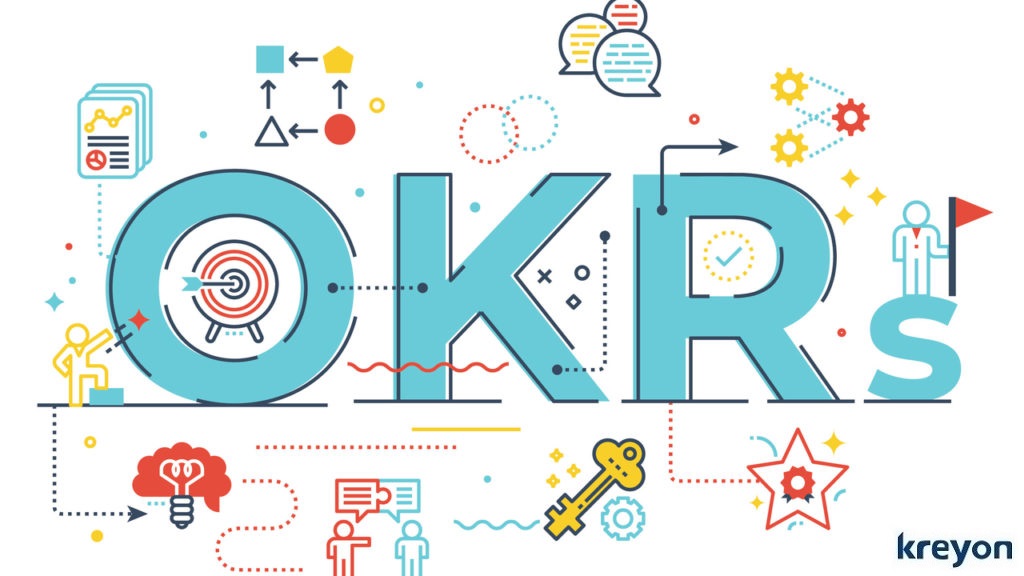How to Use OKR for SaaS Development: A Step-by-Step Guide

OKR is an acronym for objectives and key results. OKR for SaaS development is gaining prominence as companies are more focused towards their key results and outcomes. Objectives are one of the most important KPIs in modern software development.
OKRs help track and measure a company’s progress towards achieving its business goals. Objectives also help developers stay focused on making sure their software gets better over time by producing new features at a quicker pace.
If you’re not familiar with the term, objectives are statements that quantify your business goals and might change as you grow and learn more about your industry. Here we’ll take you through the steps you need to know about using OKR for SaaS development.
What is OKR?
Peter Drucker was the first one to coin the term OKR back in the 1950s. It was then employed successfully by John Doerr, chairman of Kleiner Perkins, at Google. Interestingly, John Doerr and Larry Page had a discussion about using OKRs at Google. It was followed by a presentation from John Doerr who was also an early investor in Google. It was in the early days of Google and the concept caught the imagination of the founding team.
Larry Page remarked, “OKRs helped lead us to 10x growth, many times over. They’ve helped make our crazily bold mission of ‘organizing the world’s information’ perhaps even achievable. They’ve kept me and the rest of the company on time and on track when it mattered the most.”
Objectives & key results (OKR) is a planning method that quantifies your company’s objectives against desired outcomes or key results that can be measured. A plan is just that: a set of steps you take to get from point A to point B.OKRs, on the other hand, are quantifiable measurements that allow you to assess how well you’re doing.
OKRs are used in SaaS development to set a specific set of objectives that you and your team focus on every month. You can use OKRs to help measure and track your team’s progress towards your business goals, allowing you to evaluate your efforts and find ways to improve.
OKRs are strategic goals that help businesses track progress and course-correct in the event of any roadblocks. Typically OKRs are broken down into three categories: personal or individual, team & company OKRs.
Every individual will have objectives to achieve, these will contribute to the team objectives, which inturn contribute to the company objectives. OKRs for SaaS development can be used to encourage your team, track ongoing work and motivate your team to achieve company objectives.
Today leading companies like Google, LinkedIn, Amazon, Oracle & many others all use OKRs.
Why use OKRs?

SaaS companies—especially those looking to grow—use OKRs to measure and track the progress of their team towards specific business goals. If you want to know how your software is performing, OKRs are a great way to keep track of your team’s performance.
If you don’t set OKRs, you’re not tracking your team’s performance. As your business grows, it’s likely that you’ll need to adjust your OKRs to fit your company’s needs. By setting specific OKRs, you and your team can track and measure your progress towards specific goals.
OKRs are particularly useful for SaaS companies because they allow you to measure and track the progress of your team towards specific goals and set high expectations for your team members. You can use OKRs to track your team’s performance and set high expectations for your team members.
If you have an average number of issues per sprint, you can set an OKR such as, “Sprints that have fewer than 10 issues.” You and your team can then evaluate your efforts and find ways to improve by setting the OKR again in the next month.
How to Use OKRs Effectively

It’s important to keep objectives manageable while still setting ambitious goals. Here are a few tips you can use to help you accomplish this.
Keep Objectives Concise
Keeping your objectives concise will help you set realistic goals and track your team’s progress. Whatever method you use to manage your objectives, make sure that it’s accessible to your team.
Be Consistent
Having consistent objectives will help you and your team stay focused on the right things. Setting and tracking objectives should be an activity that happens throughout your team’s sprints.
Evaluate Your Processes
If you want to track your team’s progress, you’ll need to evaluate the process that you use to manage your objectives. Make sure that the process you use to track your team’s progress is accessible and helpful for your team.
Measure Your OKRs
A good OKR can be measured objectively for e.g. increasing a sales rep could have an objective of improving company revenue. The key results expected could be winning 5 new deals or $150,000 quarterly.
Good OKRs
Good OKRs help you answer the following questions.
Where am I now?
Where do I want to go?
How do I get there?
Good OKRs can be implemented with tangible numbers and evaluated quantitatively. Here is a list of some OKRs
Objective: Successfully Launch the New SaaS Product
KR 1: Get over 1000 new signups in 1 month
KR 2: Increase free trial to subscriber Conversion Rate to 20%
KR 3: Get mentioned in 25 Newsletters
KR 4: Achieve trial to the paid ratio of over 5%
KR 5: Reduce churn rate of new users to 33%
Objective: Improve the quality of product releases
KR 1: Reduce the number of bugs found during the development process by 90%
KR 2: Improve the automation testing coverage from 75% to 90%
KR 3: Integrate the test driven development for all user onboarding scenarios
KR 4: Reduce the time required for user to achieve the intended outcomes by 10%
To Sum-up
There’s no denying that OKRs have a lot of benefits for SaaS companies when it comes to tracking and managing progress. If you want to use OKRs to help track your team’s progress, you’ll need to make sure that you’re tracking the process that your team uses to manage their efforts.
Kreyon Systems is a SaaS Product Development Company building innovative SaaS products for companies to improve user adoption, delight users and make customer successful. If you need any help or have queries, please contact us.
